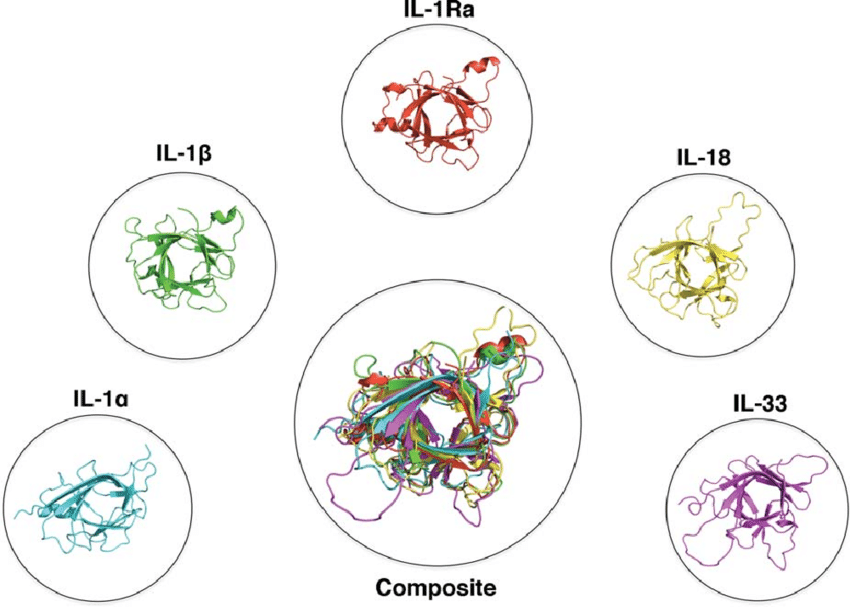Blog Post
Unveiling Interleukin-99 (IL-99): A Journey into the Future of Cytokine Discovery
In the realm of immunology, the quest for understanding and harnessing the power of cytokines continues to drive scientific curiosity. While Interleukins 1 through 38 are well-characterized, imagine a future where Interleukin-99 (IL-99) awaits discovery, promising novel insights into immune modulation and therapeutic innovation. Closing out our series on interleukins, let’s embark on a speculative exploration into IL-99, contemplating how it might be found, characterized, and its potential implications in the vast landscape of cytokine biology.
The Quest for IL-99: Discovery Strategies
Discovering IL-99 would likely involve a multidisciplinary approach combining advanced bioinformatics, high-throughput screening techniques, and in-depth immunological analyses:
- Bioinformatics and Data Mining: Leveraging vast databases of genomic and proteomic information, researchers would employ sophisticated algorithms and machine learning models to identify potential candidates for IL-99 based on sequence homology, structural predictions, and functional annotations.
- Functional Screening Assays: High-throughput screening assays, such as cytokine arrays, cellular assays, and reporter gene systems, would be deployed to detect and characterize novel cytokine activities in biological samples, including immune cells, tissues, and disease models.
- Genomic and Proteomic Profiling: Utilizing next-generation sequencing (NGS) technologies and mass spectrometry, scientists would conduct comprehensive genomic and proteomic profiling to identify transcripts and proteins with putative IL-99 properties, including expression patterns, post-translational modifications, and signaling pathways.
Characterizing IL-99: Insights into Function and Regulation
Upon discovery, characterizing IL-99 would involve a series of experiments to elucidate its biological functions, molecular interactions, and regulatory mechanisms:
- Biological Functions: Functional assays using immune cell cultures, animal models, and clinical samples would probe IL-99’s effects on immune responses, inflammation, tissue homeostasis, and potential roles in disease pathogenesis.
- Molecular Interactions: Studying IL-99’s receptor interactions, signaling cascades, and downstream effects would uncover its molecular mechanisms of action, including cytokine receptor binding, intracellular signaling pathways, and modulation of immune cell phenotypes.
- Regulatory Networks: Investigating IL-99’s regulatory networks, including transcriptional regulation, epigenetic modifications, and feedback loops with other cytokines and immune mediators, would provide insights into its roles in immune system balance and homeostasis.
Implications of IL-99: From Basic Science to Therapeutic Potential
While speculative, IL-99’s discovery could have profound implications across multiple fronts:
- Basic Science Advancements: IL-99’s characterization would contribute to fundamental knowledge of cytokine biology, immune regulation, and cellular communication, expanding our understanding of immune system dynamics and host defense mechanisms.
- Therapeutic Opportunities: Targeting IL-99 pathways could open avenues for novel immunotherapies, precision medicine approaches, and therapeutic interventions in immune-related disorders, infectious diseases, autoimmune conditions, and cancer immunotherapy.
- Disease Biomarker Discovery: IL-99’s expression patterns and associations with disease states could serve as potential biomarkers for diagnosing, prognosticating, and monitoring immune-related disorders, guiding personalized treatment strategies and disease management.
Conclusion: Pioneering the Future of Immunology
Interleukin-99 (IL-99) represents a speculative yet intriguing frontier in cytokine biology, symbolizing the continuous quest for knowledge, discovery, and innovation in immunology. While its existence remains hypothetical, the potential impact of IL-99 on immune modulation, disease understanding, and therapeutic advancements underscores the dynamic nature of scientific exploration and the limitless possibilities that await in the realm of cytokine discovery.
As we navigate the frontiers of immunology, stay tuned for future breakthroughs, potential discoveries, and transformative insights that shape the future of healthcare and immune-based therapies.


